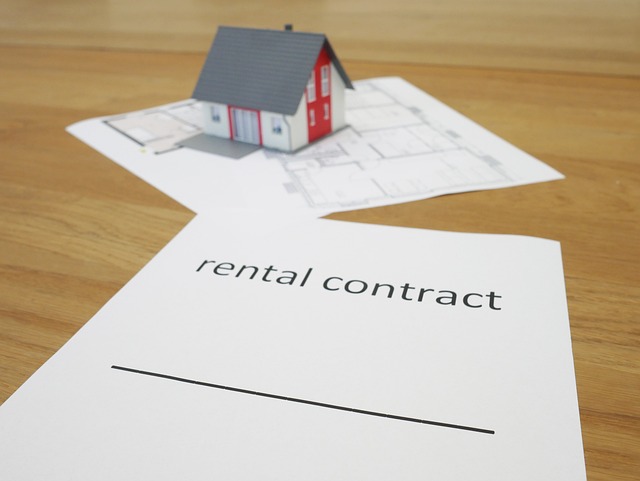Rent an Apartment Without the Hassle of a Contract: Find Easily Approved Listings
Traditional apartment leasing often involves lengthy contracts, strict credit requirements, and complex approval processes that can delay your move-in timeline. However, a growing number of rental options now offer flexibility without the commitment of long-term agreements. These no-contract alternatives provide immediate housing solutions for people who need temporary accommodations, have unique circumstances, or simply prefer month-to-month arrangements. Understanding how to navigate this rental landscape can open doors to housing opportunities that traditional leasing might not accommodate.

The rental market has evolved significantly to accommodate diverse housing needs, creating opportunities for tenants who require flexible living arrangements. No-contract rentals have emerged as a viable solution for individuals seeking immediate housing without the traditional barriers of extensive paperwork, credit checks, or year-long commitments.
Explore No-Contract Apartments: Understanding Your Options
No-contract apartments operate differently from traditional rentals by eliminating long-term lease agreements. These arrangements typically function on month-to-month terms, allowing tenants to move in quickly and leave with minimal notice requirements. Property managers offering these options often prioritize occupancy over extensive screening processes, making them accessible to people with varied financial backgrounds or credit histories.
Short-term rental platforms, extended-stay hotels with apartment-style accommodations, and private landlords frequently provide these flexible arrangements. Corporate housing companies also specialize in no-contract solutions, particularly for business travelers or people in transition between permanent residences.
Easily Approved Apartments for Rent: Streamlined Application Processes
The approval process for flexible rental options typically involves simplified requirements compared to traditional leasing. Many providers focus on income verification and basic background checks rather than extensive credit history analysis. Some accept alternative forms of income documentation, such as bank statements or employment letters, making approval more accessible.
Furnished apartment providers often expedite approvals since their business model depends on quick turnovers. Co-living spaces and room rental services similarly prioritize fast processing to maintain occupancy rates. These streamlined approaches can result in same-day or next-day approvals for qualified applicants.
Find Flexible Rental Options Without a Contract: Where to Search
Multiple platforms specialize in connecting tenants with no-contract housing options. Online marketplaces dedicated to short-term rentals offer extensive listings with detailed photos and amenities descriptions. Social media groups and community boards often feature local landlords advertising flexible arrangements.
Corporate relocation services maintain databases of temporary housing options in major metropolitan areas. University housing offices frequently maintain lists of approved short-term accommodations for visiting researchers, students, or faculty members. Real estate agents specializing in rentals can also identify properties with flexible lease terms.
No Contract, No Worries: Rent with Ease
Renting without traditional contracts eliminates many common stressors associated with apartment hunting. Tenants avoid penalties for early termination, making these arrangements ideal for people with uncertain timelines or job relocations. The reduced paperwork and faster approval processes mean less time spent on administrative tasks.
Flexible arrangements also accommodate seasonal workers, traveling professionals, or individuals between permanent housing situations. Month-to-month terms provide the freedom to extend stays or relocate as circumstances change, offering peace of mind for people with dynamic lifestyles.
Your Guide to Renting Without a Contract: Essential Considerations
While no-contract rentals offer convenience, tenants should understand the trade-offs involved. Monthly rates typically exceed traditional lease costs due to the flexibility premium and higher turnover expenses. Utilities and amenities may be included in the rent, but this convenience comes at a higher overall price point.
Security deposits and advance payments vary widely among providers. Some require first and last month’s rent upfront, while others accept smaller deposits. Understanding payment structures and cancellation policies before committing helps avoid unexpected costs or complications.
| Provider Type | Monthly Cost Range | Key Features |
|---|---|---|
| Extended Stay Hotels | $1,200-$3,500 | Furnished, housekeeping, utilities included |
| Corporate Housing | $2,000-$5,000 | Fully furnished, flexible terms, business amenities |
| Short-term Rental Platforms | $800-$4,000 | Varied options, direct landlord contact, neighborhood choice |
| Co-living Spaces | $600-$2,500 | Shared amenities, community focus, flexible leases |
| Furnished Apartments | $1,000-$3,000 | Move-in ready, utility packages, professional management |
Prices, rates, or cost estimates mentioned in this article are based on the latest available information but may change over time. Independent research is advised before making financial decisions.
Successful no-contract renting requires clear communication with property managers about expectations and terms. Documentation of agreements, even informal ones, protects both parties and prevents misunderstandings. Regular communication about renewal intentions helps maintain positive relationships with landlords who may offer preferred rates for reliable tenants.
No-contract apartment rentals represent a growing segment of the housing market that prioritizes flexibility over traditional lease structures. These arrangements serve diverse populations seeking immediate housing solutions without long-term commitments. While costs may be higher than conventional rentals, the convenience and accessibility often justify the premium for people in transitional situations or those requiring housing flexibility. Understanding available options and provider expectations enables tenants to make informed decisions that align with their specific housing needs and circumstances.




